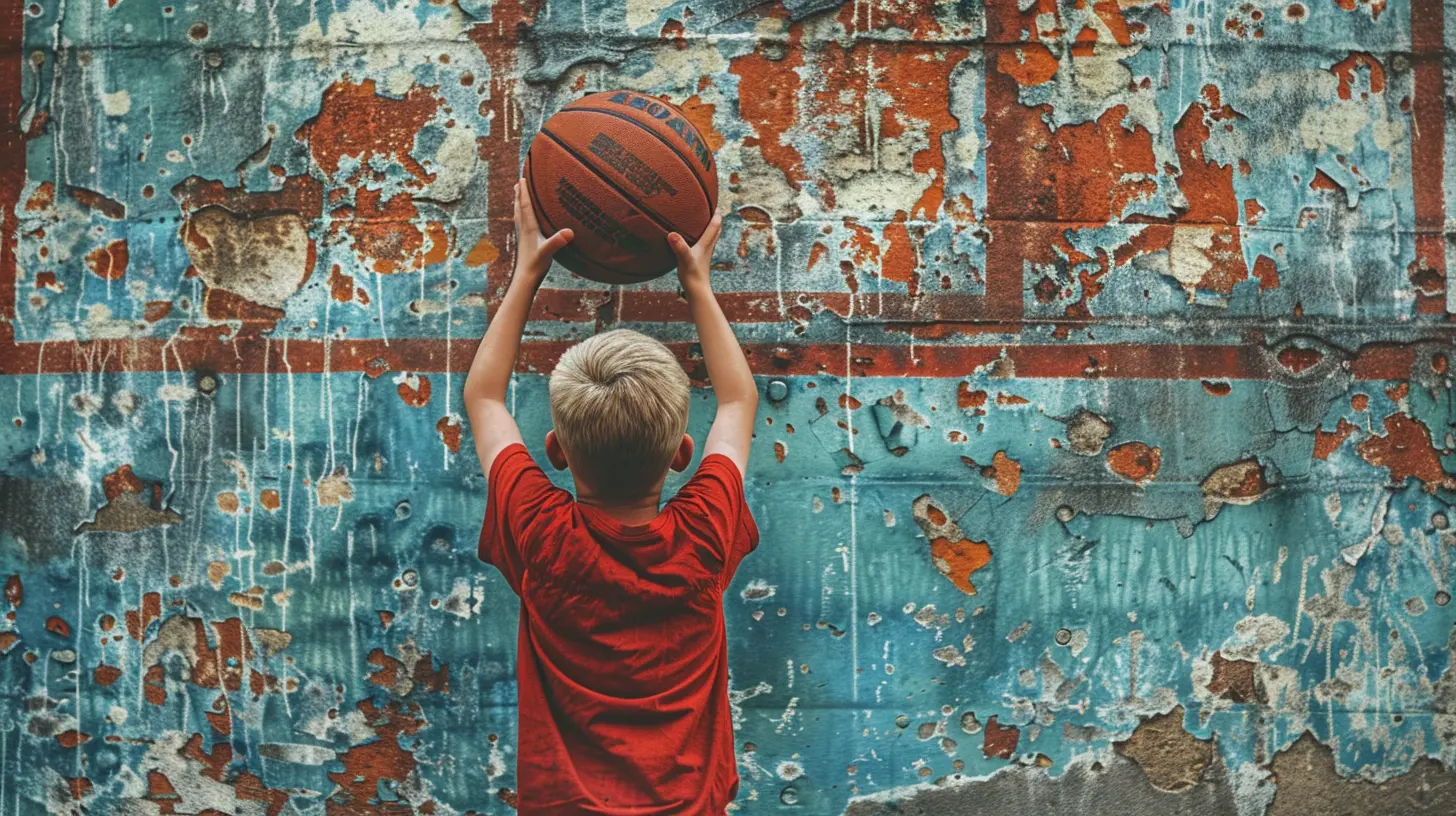21 March 2025
Raising a talented young athlete is a journey filled with excitement, pride, and—let’s be honest—a fair share of stress. When your child is excelling in sports at a high level, it’s easy to get caught up in the whirlwind of practices, tournaments, and expectations. But amidst the early morning practices and cross-country competitions, how do you keep perspective and maintain balance?
Let's dive into the challenges, the rewards, and, most importantly, how to ensure that your child’s athletic career remains a positive experience for the whole family. 
The Pressure of Raising an Elite Youth Athlete
Being the parent of a gifted young athlete is both thrilling and daunting. The pressure doesn’t just fall on them—it falls on you, too. Coaches expect commitment, schools demand academic performance, and the competition never stops. It’s easy to start feeling like your child’s success (or struggle) is a direct reflection of your parenting.But here’s the truth: Your role isn’t to mold the next Olympic champion. Your job is to raise a happy, well-rounded human being who happens to have amazing talent.
If you’re constantly living on the edge of anxiety over their performance, it’s time to step back and reassess. Kids, no matter how talented, need support—not pressure.

Keeping Perspective: Why It’s About More Than Just Winning
Sports Should Compliment Life, Not Consume It
Yes, sports teach discipline, hard work, and teamwork. But they should never take precedence over everything else. If your child’s entire identity is wrapped up in their athletic success, what happens if they get injured? Or if they lose their love for the sport?Encourage other interests. Support their friendships outside their team. Ensure they have time for family, school, and just being a kid. Balance is key to preventing burnout.
Your Child is Not Their Sport
It’s easy to start seeing your child through the lens of their athletic achievements—especially when other people do the same. Conversations revolve around their latest game, their stats, their college prospects.But behind the athlete is a kid who still needs unconditional love, regardless of how they perform. Celebrate their hard work, not just their wins. Let them know that even if they never score another goal or win another race, they are enough.
The Reality of Long-Term Athletic Careers
Let’s be real—only a tiny percentage of youth athletes go on to compete professionally. According to the NCAA, only about 2% of high school athletes receive college sports scholarships, and even fewer make it to the professional level.That doesn’t mean their hard work is wasted. Far from it. Sports teach resilience, teamwork, and grit—values that carry over into all aspects of life. But placing all bets on a future sports career can set kids up for disappointment.
Encourage dreams, but also make education and other life skills a priority. Sports can be a stepping stone, not the end goal.

Avoiding Burnout: Keeping the Love for the Game Alive
Burnout is real. And it happens when young athletes feel more pressure than passion.Watch for the Signs
- Loss of motivation – If they used to love the game but now dread practice, something’s off.- Increased stress or anxiety – Tears over a small mistake? Constant frustration? These are red flags.
- Exhaustion and frequent injuries – Overtraining takes a toll on both the body and mind.
Help Them Set Their Own Goals
Are they playing because they love it—or because they think you expect them to? Goals should come from within, not be imposed externally. Help them find internal motivation rather than seeking external validation.Make Space for Fun
Remember when sports were just about having fun? Running around, making friends, enjoying the game? That should never disappear, no matter what level they compete at.Allow time for unstructured play, let them experiment with other activities, and remind them why they started in the first place.

Your Role as a Supportive Parent
Be Their Safe Space, Not Another Coach
Coaches critique, correct, and push athletes to improve. That’s their job. But as a parent, your role is different. Your child doesn’t need another coach at home—they need a supporter.Help them process tough losses with encouragement, not criticism. Let them vent without jumping in with solutions. Cheer them on, no matter the outcome.
Focus on Effort, Not Just Outcomes
It’s tempting to measure success only by wins and stats, but real success is in the effort. Did they give their best? Did they show good sportsmanship? Did they grow as an athlete and a person?Recognizing effort over results helps them build resilience and confidence that isn’t dependent on external validation.
Teach Them to Listen to Their Body
Pushing through pain isn’t a badge of honor—it’s a recipe for injury. Encourage your child to communicate openly about how they feel, and prioritize rest and recovery.If they’re exhausted or in pain, take it seriously. Being tough isn’t about ignoring discomfort; it’s about knowing when to rest so they can come back stronger.
Finding Balance as a Family
Don’t Let Their Sport Run the Household
It’s easy to fall into the trap of revolving the entire family’s schedule around competitions, practices, and training sessions. While commitment is important, so is balance.Ensure family activities aren’t always secondary to sports. Plan vacations that aren’t dictated by tournaments. Make time for non-sports-related conversations and experiences.
Being an athlete should be an aspect of their childhood, not the entirety of it.
Encourage Friendships Outside of Sports
Teammates are important, but having a social life beyond their sport is crucial. Help them cultivate friendships outside of athletics so their identity isn’t solely tied to their team.Take Care of Yourself, Too
Let’s be honest—parenting an elite athlete is exhausting. The financial demands, the time commitment, the emotional rollercoaster—it's a lot.Don’t neglect your own well-being. Find support from other parents, set boundaries, and take time to recharge. If you’re burnt out, it’s harder to be the parent they need.
The Bigger Picture
At the end of the day, youth sports should be about growth, joy, and personal development. Yes, competition is intense, and discipline is key, but perspective is everything.Your child is more than their statistics. Their value isn’t measured by medals. They are learning, growing, and experiencing life through sports—but sports shouldn’t define them entirely.
Find the balance. Keep perspective. And most importantly, enjoy the journey together.





Zevon Henson
Balancing support for my young athlete while prioritizing their well-being has been a challenge, but perspective keeps us grounded and focused on what truly matters.
March 27, 2025 at 3:38 AM